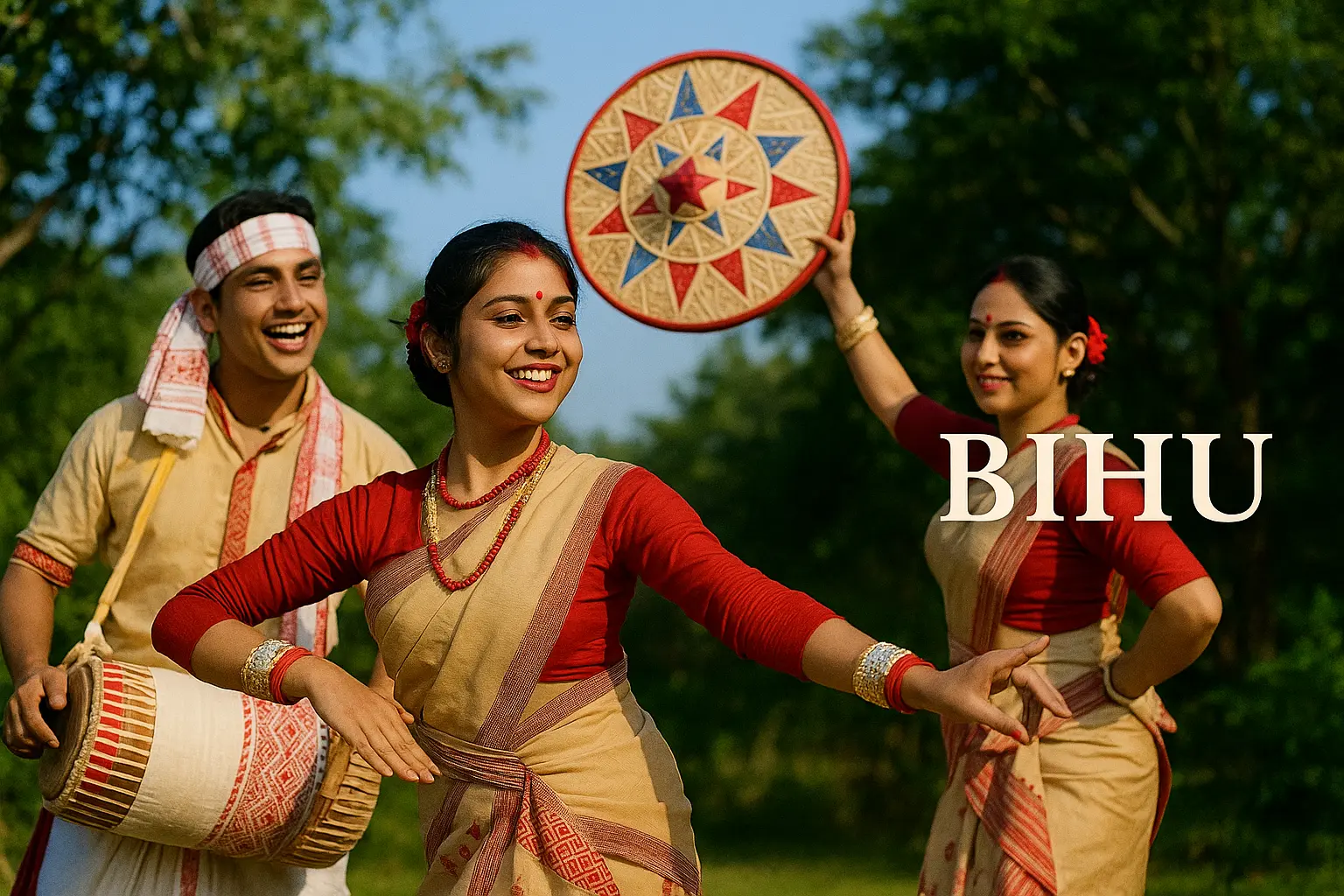Bihu: Assam’s Vibrant Festival of Dance, Music, and Harvest 🌾
Celebrate Bihu, Assam’s vibrant festival of dance, music, and harvest! Learn its history, rituals, and modern relevance. Join the colorful festivities in India and embrace the spirit of joy and unity. 🎉
Aditya Pandey

Bihu, the heart and soul of Assamese culture, is a set of three vibrant festivals celebrated in Assam, India, marking key phases of the agricultural cycle. Known for its lively Bihu dance, soulful music, and communal feasts, Bihu is a celebration of life, nature, and unity. The three main types—Rongali Bihu (spring), Kongali Bihu (autumn), and Bhogali Bihu (winter)—each carry unique traditions but share the spirit of joy and togetherness. Bihu is not just a festival but a cultural identity for Assamese people, drawing locals and tourists alike to its colorful festivities.
For a deeper understanding of India’s rich festival traditions, explore Ancient Festivals of India.
Historical Background of Bihu 📜
The origins of Bihu trace back to ancient agrarian communities in Assam, with roots in pre-Aryan and indigenous tribal traditions. While exact historical records are scarce, Bihu is believed to have evolved over centuries, blending practices of the Austroasiatic, Tibeto-Burman, and Indo-Aryan peoples of the Brahmaputra Valley. The festival’s connection to agriculture reflects Assam’s fertile landscape, where rice cultivation has long been central to livelihoods.
Historical texts like the Kalika Purana and accounts from the Ahom dynasty (13th–19th centuries) mention harvest festivals resembling Bihu, suggesting its deep cultural significance. Rongali Bihu, celebrated in April, aligns with the Assamese New Year and the spring harvest, while Kongali Bihu in October marks the sowing season, and Bhogali Bihu in January celebrates the post-harvest abundance. These festivals were formalized under the Ahom kings, who patronized Bihu as a unifying cultural event.
Over time, Bihu incorporated elements of Vaishnavism, introduced by the 15th-century saint Sankardev, enriching its spiritual dimension. Today, Bihu is a symbol of Assamese identity, celebrated across Assam and by the Assamese diaspora worldwide, preserving its historical legacy. 🕉️
